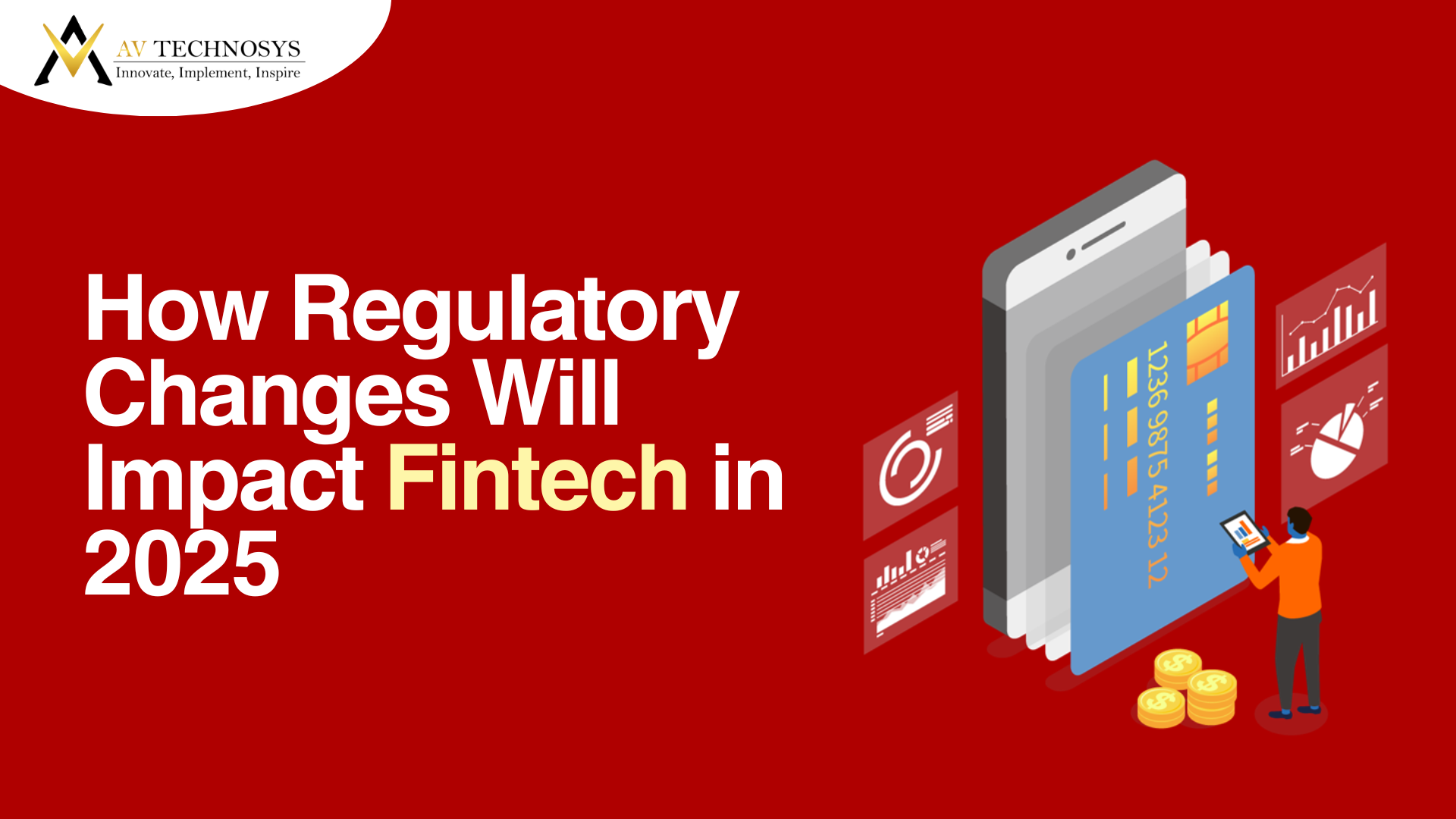Most Profitable Tech Business Ideas to Start in Saudi Arabia
Discover the most profitable tech business ideas to start in Saudi Arabia in 2025, from fintech to e-commerce, with expert insights from AV Technosys.


App Development
Saudi Arabia is undergoing a rapid digital and economic transformation, powered by Vision 2030, government-backed investments in non-oil industries, and a young, tech-driven population. This shift has opened the doors for entrepreneurs to tap into new opportunities across sectors like fintech, e-commerce, healthtech, and smart infrastructure.
For anyone planning to launch a tech venture in the Kingdom, selecting the right idea is only the beginning. Long-term success depends on how well you execute, comply with local regulations, and adapt to the market’s unique needs.
In this article, we’ll highlight the most profitable tech business ideas in Saudi Arabia today, explain why they work in this market, and share practical insights to help you get started.
Why Saudi Arabia is attractive for tech businesses
Several structural trends make Saudi Arabia a promising market for tech startups:
Strong government support through Vision 2030 and related initiatives that fund digital, healthcare, education, and entertainment sectors.
Large and growing digital consumer base: high smartphone penetration and active social media usage.
Significant capital flow into new economy sectors: fintech, e-commerce, tourism tech, healthtech, edtech, and smart cities.
Preferential procurement, partnerships, and pilot programs with government entities and large corporations for solutions that support national priorities.
A talent pool that’s expanding via universities, coding bootcamps, and regional tech hubs.
Given this backdrop, the following ideas are both commercially promising and aligned with Saudi priorities.
1. Fintech solutions for underserved segments
Fintech remains one of the most lucrative verticals globally and in Saudi Arabia. Opportunities include digital payments, SME lending platforms, buy-now-pay-later (BNPL), payroll and expense management for businesses, and remittance services tailored to expatriate workers. Partnering with a leading mobile app development company can help entrepreneurs bring these fintech ideas to life with secure, scalable, and user-friendly solutions.
Why it works: The Kingdom is modernizing its financial ecosystem and encouraging digital transactions. SMEs and consumers both want faster access to credit and convenient payment methods.
How to start: Partner with licensed local financial institutions or apply for Fintech sandbox access. Prioritize compliance with SAMA (Saudi Central Bank) rules, integrate with local payment rails, and build strong KYC/AML processes.
Revenue model: Transaction fees, subscription for SaaS features, interest spreads for lending, or interchange revenue.
2. Enterprise SaaS for local industries
Vertical SaaS products that cater to logistics, construction, hospitality, and oil-and-gas subcontractors can be highly profitable. Examples: project management for construction firms, workforce scheduling for hospitality, and compliance management for oilfield service providers.
Why it works: Local enterprises increasingly want cloud-based software to standardize operations and meet regulatory demands.
How to start: Start with a niche pain point, build an MVP, and pilot with one or two local clients (preferably large enterprises or government entities). Offer Arabic UI and region-specific workflows.
Revenue model: Monthly/annual subscriptions, premium professional services, and integrations/customization fees.
3. Healthtech: telemedicine and digital clinics
Digital health adoption accelerated globally; in Saudi Arabia, telemedicine, remote patient monitoring, and specialized digital clinics (mental health, chronic disease management) are in demand.
Why it works: There is a rising demand for accessible healthcare services, and regulators have been supportive of telehealth with defined licensing pathways.
How to start: Work with licensed clinicians, ensure data residency and HIPAA-like compliance adapted to Saudi requirements, and integrate with local insurers where possible.
Revenue model: Per-consultation fees, subscription plans, partnerships with employers and insurers, and B2B contracts with hospitals.
4. Edtech and corporate training platforms
From language learning and professional upskilling to remote corporate training platforms tailored for Saudi industries, edtech remains a strong growth sector. Localization of Arabic content and alignment with Saudi job markets are key.
Why it works: The government prioritizes workforce upskilling; corporates invest in training to meet localization (“Saudization”) targets.
How to start: Build modular, mobile-first courses with measurable outcomes; partner with universities or training centers for credibility. Offer content to both B2C and B2B.
Revenue model: Subscriptions, licensing to corporations, certification fees, and government training contracts.
5. E-commerce niche marketplaces
While general e-commerce is competitive, niche marketplaces (organic food, halal cosmetics, traditional crafts, local artisans) and B2B marketplaces for construction materials or industrial supplies can deliver high margins. Partnering with an experienced e-commerce app development company enables entrepreneurs to build customised platforms that attract the right audience, streamline transactions, and scale efficiently in the Saudi market.
Why it works: Consumers increasingly shop online; localized, trust-driven marketplaces with logistical reliability stand out.
How to start: Solve logistics through partnerships with local couriers, provide Arabic UX, and focus on high-margin product categories. Invest early in customer service and returns handling.
Revenue model: Commission on sales, featured listings, subscription for sellers, warehousing and fulfillment fees.
6. Last-mile delivery & logistics tech
Logistics tech solutions, route optimization, rider platforms, and delivery orchestration for food and retail address a persistent bottleneck. Innovations around hyperlocal fulfillment, dark stores, and same-day delivery remain valuable.
Why it works: Urbanization and e-commerce growth create pressure on last-mile deliveries; companies will pay for reliable solutions that cut costs and time.
How to start: Launch pilots in a single city to prove reliability; build a mix of independent couriers and micro-fulfillment centers. Use route optimization and dynamic pricing.
Revenue model: Delivery fees, subscription for merchant integration, and software licensing.
7. Renewable-energy and smart-grid tech
Saudi Arabia’s pivot to diversify energy includes solar and energy-efficiency projects. Tech businesses that enable energy management, smart meters, and predictive maintenance for renewable assets will find demand from both public and private sectors.
Why it works: Large national projects require software and monitoring tools; companies that reduce operational costs are attractive.
How to start: Focus on monitoring and analytics for pilot projects, partner with local EPC (engineering, procurement, and construction) firms, and ensure device compatibility.
Revenue model: Hardware + software bundles, subscription for analytics, and revenue-sharing with energy producers.
8. Cybersecurity and compliance services
As digital adoption rises, so does the need for security. Managed security services, SOC-as-a-service, compliance auditing, and security training are high-margin offerings.
Why it works: Enterprises and governments prioritize data protection; local regulations demand compliance and secure handling of sensitive data.
How to start: Build or partner for a SOC, offer penetration testing and compliance services (local and international standards), and target regulated sectors first (financial services, healthcare).
Revenue model: Retainer-based security services, incident response fees, and training subscriptions.
9. Tourism tech & experiences
Saudi Arabia is investing heavily in tourism. Tech that improves visitor experience, digital guides, booking platforms for cultural tours, AR/VR historical experiences, and language assistance apps can capture growing tourism revenue.
Why it works: New tourist destinations and events create demand for curated digital experiences and easier booking workflows.
How to start: Collaborate with tourism authorities and hospitality groups for pilots, and design multilingual platforms that respect cultural norms.
Revenue model: Commission on bookings, licensing to hotels/tour operators, and premium experience upsells.
10. AI and ML consulting for enterprise modernization
AI adoption is accelerating across industries for automation, demand forecasting, and customer analytics. A consultancy that helps enterprises implement AI/ML (not just model building but integration and change management) can charge premium rates.
Why it works: Large corporates need pragmatic AI solutions and in-house capability building rather than academic prototypes.
How to start: Showcase case studies with measurable ROI, deploy quick pilots, and offer managed AI services that don’t require heavy client-side hiring.
Revenue model: Project-based consulting fees, managed services subscriptions, and training.
11. Real estate tech and property management platforms
PropTech tenant management, automated lease processing, maintenance scheduling, and smart building dashboards remain lucrative in a country with massive real estate projects.
Why it works: Developers and property managers want tools to improve occupancy, reduce costs, and provide better tenant services.
How to start: Build modules that integrate with accounting and CRM systems; target commercial real estate and large housing projects.
Revenue model: SaaS subscription, platform transaction fees, and custom integrations.
12. Retail analytics & in-store tech
Solutions for inventory analytics, shopper behavior tracking, and cashierless checkout can deliver strong ROI for retail chains and supermarkets.
Why it works: Retailers want to optimize inventory and personalize offers to customers; data-driven tools are in demand.
How to start: Offer pilot projects with clear KPI improvements, such as reduced shrinkage, increased conversion, or higher basket value.
Revenue model: Software subscriptions, hardware sales for in-store devices, and analytics consulting fees.
Practical steps to launch and scale in Saudi Arabia
Validate demand locally: Run customer discovery with local stakeholders, retailers, hospital administrators, property managers, or corporate IT teams. Pilots win credibility.
Local partnerships: Partner with Saudi corporates, government entities, or established service providers for distribution and compliance pathways.
Hire local talent & cultural fit: Arabic language support, local sales teams, and cultural understanding are critical for adoption.
Regulatory compliance: Understand licensing and sector-specific rules (e.g., SAMA for fintech, Ministry of Health for healthtech). Engage local legal counsel early.
Data residency & security: Many clients will require data to be stored in-country. Arrange local cloud regions or partner with local cloud providers.
Go-to-market strategy: Mix B2B sales for enterprise deals with digital marketing and channel partnerships for volume adoption.
Funding and incentives: Explore government funding programs, accelerators, and partnerships with sovereign funds and VC firms that focus on the region.
Common challenges and how to mitigate them
Regulatory complexity: Hire local legal experts; build regulatory compliance into product design from day one.
Long sales cycles for enterprise/government deals: Use pilots and performance-based contracts to demonstrate ROI faster.
Localization requirements: Invest early in Arabic UX, right-to-left (RTL) design, and region-specific content.
Talent acquisition: Offer training programs and remote work models; partner with local universities and bootcamps.
Infrastructure and integrations: Make integrations with local payment gateways, identity providers, and telecoms a development priority.
Tech stack recommendations and operational tips
Cloud & hosting: Use providers with data centers in the region, or partner with local cloud resellers for data residency.
APIs & integrations: Build modular APIs to integrate with local services (payment gateways, identity verification, logistics providers).
Security & compliance: Implement best practices (encryption at rest and transit, RBAC, audit trails) and obtain relevant certifications.
Product development: Start with an MVP focused on one city or one enterprise customer. Iterate quickly based on feedback.
Support & SLAs: Enterprise clients expect robust SLAs and local-language support; plan a local support team or partner.
Funding and exit potential
The Saudi market has seen growing venture capital interest and sovereign-backed funds that invest in strategic tech sectors. If your product addresses national priorities (education, healthcare, renewable energy, fintech, tourism), you can access grants, public-private partnerships, and later-stage funding for regional expansion. Potential exit paths include acquisition by regional tech companies, expansion into GCC markets, or strategic partnerships with global players.
Conclusion: choose focus, deliver value, and build trust
Saudi Arabia offers immense opportunities where government vision and private capital align to support tech ventures. Success comes from product market fit, compliance, and strong local partnerships.
AV Technosys helps businesses turn ideas into scalable solutions with cutting-edge mobile and web development. Ready to build your next profitable tech venture in Saudi Arabia?
FAQs
1. What are the most profitable tech businesses to start in Saudi Arabia in 2025?
Some of the top opportunities include fintech platforms, e-commerce marketplaces, healthtech solutions, tourism tech, enterprise SaaS, and renewable energy tech. These sectors align with Saudi Arabia’s Vision 2030 and attract both government and private investment.
2. Why is fintech such a strong opportunity in Saudi Arabia?
Fintech is booming due to high smartphone penetration, a young population, and regulatory reforms by SAMA (Saudi Central Bank). Ideas like BNPL apps, digital payments, SME lending, and remittance services are in high demand. A mobile app development company can help businesses bring these solutions to market quickly.
3. Is e-commerce still profitable in Saudi Arabia?
Yes, but the focus has shifted to niche markets such as organic food, halal cosmetics, and B2B marketplaces. Businesses that partner with an experienced eCommerce app development company can create user-friendly platforms that stand out in the competitive market.
4. How important is government support for tech startups in Saudi Arabia?
Very important. Through Vision 2030, Saudi Arabia provides funding, regulatory support, and infrastructure for sectors like fintech, AI, renewable energy, and tourism. Startups that align with national goals have higher chances of scaling.
5. Do I need a local partner to start a tech business in Saudi Arabia?
Yes, local partnerships often help with compliance, cultural alignment, and market access. Whether it’s fintech, SaaS, or eCommerce, working with local entities can accelerate trust and adoption.
6. How much capital is required to launch a profitable tech business in Saudi Arabia?
The required investment depends on the sector. Small SaaS or marketplace startups may begin with $50,000–$200,000, while fintech or healthtech ventures may need larger funding due to compliance and infrastructure needs.
📬 Get in Touch With Us
Name
Mobile No.
Message
Our Latest Blogs
Get the most recent information on trends, technology, and development insights.
View All Blogs

Ashish Bishnoi
07-05-2025
Discover how AI is reshaping fintech with key trends and real-world benefits driving innovation in 2025.

Veer choudhary
08-05-2025
Explore how new regulatory changes will shape the future of fintech in 2025 and beyond.

Veer choudhary
11-05-2025
Learn why fintech startups fail with real examples and key lessons to build smarter in 2025.
Our Technology Experts Are Catalysts for Digital Transformation
Book a Free call with Our Experts and Start Building the Future Today.

INDIA
238, 2nd floor, Purani Chungi,
DCM Road, Vaishali Nagar,
Jaipur, Rajasthan, 302017
+91 9983034111

UK
1-3 St Nicholas Street Worcester
WR1 1UW, United Kingdom
+44 7470994018

USA
15632 Lucy Lane ,
Frisco , TX , 75033
303-589-5158







